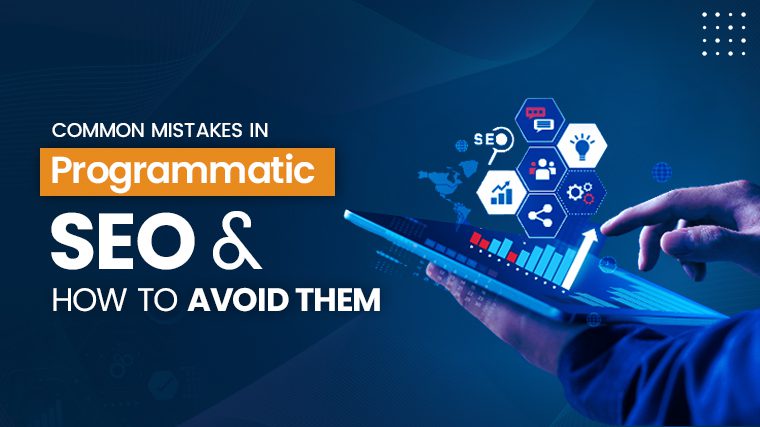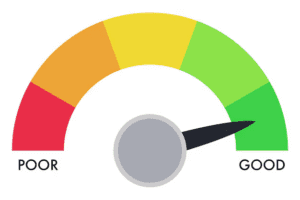
Programmatic SEO has greatly overhauled the creation of massive content on websites through search engines. Through the automation of the creation of pages and an optimization process for scale, businesses are able to rank on many long-tail keywords, thus generating astounding organic traffic. Nevertheless, it causes poor ranking, duplication of similar and replicated content, and penalties from the search engines.
In order to prevent common and costly mishaps that can be made in programmatic SEO, it is essential to know them and how to avoid them. Below is a discussion of these potential mistakes and how to avoid them.
What Is Programmatic SEO?
Programmatic SEO is a complex strategy where landing pages are generated in bulk to capture the market of a vast number of search queries. Businesses, instead of writing all the pages manually, use templates, dynamic content, and structured data in order to create thousands of optimized pages.
This is frequently applied in fields such as e-commerce, real estate, and travel since marketers require targeting different versions of the same phrase. A good programmatic SEO strategy helps to increase the site’s exposure rate and attract more qualified traffic. However, if it is done in the wrong way, it is likely to produce low-quality web pages, duplicate content, and, in the extreme, search engine penalties.
Common Mistakes in Programmatic SEO
Thin or Low-Quality Content
Another major flaw that is commonly made in programmatic SEO is the creation of pages with little or no substance. Most companies use automation to generate multiple pages within a short period without regard to their originality or usefulness. Due to this reason, thin pages do not meet Google’s high standards of quality and information value.
A poorly optimized programmatic SEO can result in poor engagement, high bounce rates, and low click-through rates, and, in extreme cases, the programmatic site gets deindexed. The practice of filling pages with textual content, keywords, or automated content with little or no relevance to the users will create difficulties in ranking in the competition.
Duplicate Content Issues
This usually happens when using programmatic pages, where numerous URLs are created with similar or even the same content. This is the case of templates, which are used in the creation of pages with little differentiation; hence, many pages have nearly similar content.
They face challenges regarding which version of the page should be allowed to rank, and consequently, keyword cannibalization occurs. This leads to a dilution of the ranking power, and in some cases, the pages are not considered at all. If an organization has not put in place measures to deal with duplicate content, then they are likely to be pushed out of the window by other websites.
Ignoring Search Intent
Programmatic SEO should, therefore, mirror what the users are searching for. One of the errors is developing the page that is created to rank large or irrelevant keywords, not for the user’s needs. If this is not the case, the particular page will not get high ranks or conversions, and, therefore, it will not attract traffic.
For instance, an internet marketing service company developing SEO pages that contain information about various services provided in different cities must make sure that any user who is searching for a service in a particular city will get relevant information. If the pages are too general, they will be abandoned, and Google will take this as a sign that the information provided on the page is not valuable.
Lack of Internal Linking Strategy
Another element of internal linking is closely connected with SEF, which is important for distributing the page authority and making the site navigation easier. Unfortunately, most programmatic SEO barely pay attention to the internal linking of the website and create pages that end up being hard for Google to crawl and index.
connection between the pages through the contextual links, breadcrumbs, and structure of navigation in a digital marketing agency.
Slow Page Load Speeds
Having programmatic SEO leads to the generation of thousands of pages, which, when slow to load, would lead to a negative impact on the ranking. Currently, speed is an important ranking factor, and slow loading of the website decreases the probability of having more bounces.
There is a need to ensure that the images are as small as possible, the code is clean, and caching is implemented on large-scale websites. Failure to implement most or all of the optimizations can lead to search engines down-ranking slow pages and, therefore, slow down the site.

No Structured Data Implementation
Schema markup is data that assists search engines in comprehending content better and how web pages are displayed in the results. Some programmatic SEO practices exclude structured data from the equation while it can be used for rich snippets, FAQs, and other search features.
Therefore, if programmatic pages are not associated with structured data, it may be difficult for them to rank higher and, therefore, get more click-throughs. Specifying the schema based on the content type, for example, product list or services page, has a greatly positive effect.
How to Avoid These Mistakes
Create High-Quality, Unique Content
When it comes to programmatic SEO, one has to ensure that they create value for people who use the internet. However, it is much wiser to focus on quantity only when it comes to quality or, rather, uniqueness and good writing. Having a robot or artificial intelligence to help in the generation of content is acceptable, but the work needs to be supervised. Every page must include valuable information, clear and comprehensive descriptions, and detailed and accurate information.
Adding customized content such as unique introductions, users’ opinions and feedback, and FAQs to every page can make each page look different. Cool The search engine giant rewards uniqueness; therefore, repetitive usage of the same words and phrases within different pages should be avoided for long-term ranking.
Use Canonical Tags to Tackle Duplicate Content
If several programmatic pages target the same keyword, they should be pointed to the first one, and this is done via canonical tags. This eliminates the problem of having two or more pages of the website competing for a certain keyword and centralizes the link juice.
They also can notice the URL structure and vary the content dynamically to make the pages that look similar are, in fact, different. Only create similar pages when it is unavoidable, but when it is, ensure that each version is different from the others by using locality, individual customers’ testimonials, or sector.
Align Pages with Search Intent
Thus, having an insight into the user intent can be critical in the programmatic SEO process. Instead of creating thousands of pages for random keywords, determine the search intent behind every keyword used. Concerning the message, that page should provide answers to the user’s query, whether they are searching for information, service, or comparison.
For instance, an SEO services provider specializing in ecommerce business should make sure that every page contains the category, subcategories, filters, and customer reviews. This not only helps engage the users but also gets a low bounce rate and better ranking in the search engine.
Implement a Strong Internal Linking Strategy
This means that each page is an equally important part of the whole site, and proper internal linking plays the role of distributing the page authority, which in turn improves the usability of a website. Each programmatic page should contain links to the parent categories according to their type, subcategories, and related material. This increases visibility and enhances Google’s crawling function to target all pages.
In addition, breadcrumb navigation, proper anchor texts, and related content widgets also help in internal linking. The internal linking structure is properly designed in a way that there can be no orphaned pages, and all the pages contribute to the power of the website regarding search engine optimization.
Optimize Page Speed and Performance
The problem is that the faster the pages load, the better the chances of success in the search engine rankings. This is an important statement as large-scale websites are required to implement performance optimization to ensure that all programmatic pages take a shorter time to load. These are optimizing images, turning on lazy-loading for images, optimizing JavaScript, and employing a CDN.
Website audits should monitor for performance issues to determine if the newly generated pages are up to par in terms of speed and user experience. A slow website puts a toll on the website’s position in the search engine results pages, the number of conversions, and user engagement.
Leverage Structured Data for Better Visibility
The information extracted from tables gives more information and context to the search engine for visibility. Programmatic page schema markup enhances how the programmatic page appears in the SERP and enhances the click-through rate.
For instance, the local business page could contain the business name, address, and reviews, while the product page must contain information regarding price and stock. This added information makes the pages look more attractive in the search results and, therefore, increases the organic traffic.
Final Thoughts
Programmatic SEO is an effective strategy when implemented correctly, but there are a few pitfalls that you need to avoid. While focusing on content quality, search intent, technical SEO, and constant improvement of user-friendliness will ensure further growth.
For organizations that are planning on investing in or enhancing their programmatic SEO, there is no better way to go than to seek support from an excellent digital agency, UK, such as e Intelligence. From internet marketing service strategies to ecommerce SEO services, there are various ways in which a professional digital marketing agency ascertains that programmatic SEO is efficient in the long run.



